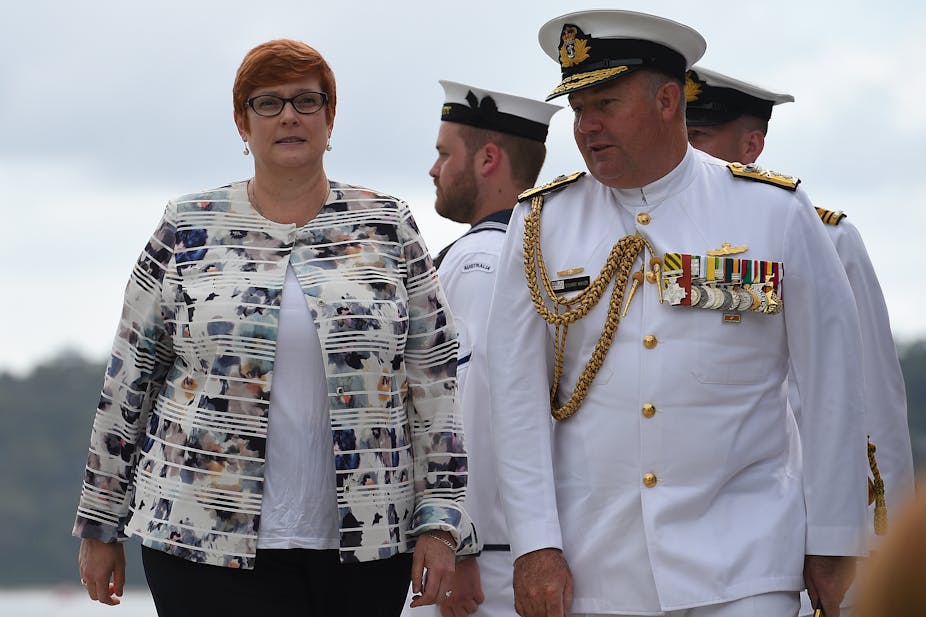The defence white paper will pledge an additional A$29.9 billion in defence spending over the coming decade and support for businesses to innovate in areas such as cyber security and aeronautics.
Malcolm Turnbull has linked the paper, which he inherited in draft form from the Abbott government, into his own wider domestic agenda of innovation, cutting-edge technology and jobs.
There will be heavy emphasis on industry policy, with a costed ten-year integrated investment program and a defence industry policy statement. Turnbull told parliament the paper would deliver jobs and investment in advanced high-tech manufacturing and generate new economic activity in regional Australia.
The paper will recommit to raising to 2% of GDP the country’s expenditure on defence within ten years of the Coalition’s election in 2013. At present, spending is running at about $32 billion annually and is 1.93% of GDP.
Outlining the strategic picture, the force capability and the resources to be allocated, the paper will provide for an increase in defence personnel of about 2500-3000.
There will be a commitment to build 12 new submarines, but no decision on the contract until mid-year. A fierce lobbying effort is underway by the Japanese, Germans and French, with the Japanese losing their strongest advocate when Tony Abbott was deposed. The need to hold up Liberal seats in South Australia means the submarines are now expected to be built in that state.
Work on the white paper started in early 2014; its preparation period has seen two prime ministers and three defence ministers.
While there was a well-advanced draft when Turnbull became prime minister, he and the new defence minister, Marise Payne, wanted to review it carefully and put their own stamp on it.
The paper will be closely scrutinised for its take on China, especially given the escalating tension over its activity in the South China Sea. In its public statements the Australian government has sought to tread a careful line between registering concern and avoiding provocation.
The 2009 white paper, when Kevin Rudd was prime minister, reflected considerable suspicion of China and elicited a negative reaction from the Chinese. There was a pull-back in the 2013 paper.
Regional countries including China have been briefed on the white paper’s contents. During its drafting, there were extensive consultations with allies and other countries. A round of public consultations was held in Australia.
Abbott this week set up some markers for Turnbull’s white paper in an opinion piece in The Australian. He wrote: “The white paper should confirm the Abbott government’s commitment to giving our armed forces global reach; a continuous build of major ships here in Australia coupled with measures to achieve competitive costs; and above all else the spending needed to sustain armed forces that can defend Australia and more than match any regional adversary.”
He said that almost certainly the paper would reiterate the Abbott government’s 2% commitment “but the real test of the Turnbull government’s seriousness will be timely decisions on naval shipbuilding, particularly future frigates and the next generation of submarines”.

